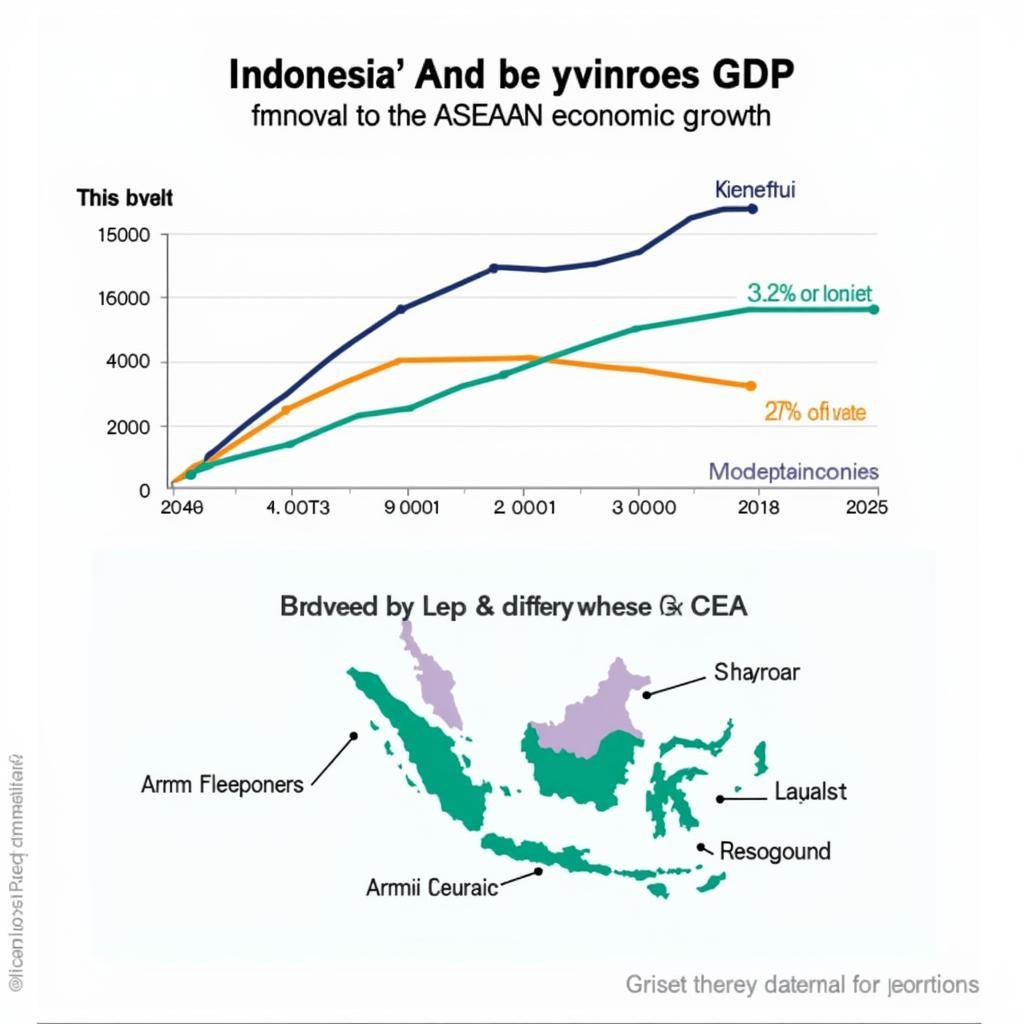Indonesia holds a significant position within the ASEAN economic landscape, contributing substantially to the region’s growth and development. Its large population, abundant natural resources, and strategic location make it a key player in Southeast Asia’s economic integration.
Indonesia’s Economic Influence: A Driving Force in ASEAN
Indonesia’s economic influence in ASEAN is undeniable. As the largest economy in Southeast Asia, it plays a crucial role in shaping the region’s economic trajectory. Its large and growing consumer market, combined with its rich natural resources, provides a strong foundation for economic expansion. Furthermore, Indonesia’s commitment to regional cooperation and integration through ASEAN has further solidified its position as a leading economic force.
The Power of Demographics and Resources: Indonesia’s Economic Advantages
Indonesia boasts the largest population in ASEAN, representing a massive consumer market that drives domestic demand and attracts foreign investment. This large population also provides a substantial labor force, fueling various industries. In addition, Indonesia is rich in natural resources, including coal, oil, natural gas, and various minerals, contributing significantly to its export earnings and overall economic strength.
 Indonesia's Economic Growth and Contribution to ASEAN
Indonesia's Economic Growth and Contribution to ASEAN
Indonesia’s Contribution to ASEAN Trade and Investment
Indonesia actively participates in ASEAN economic initiatives, promoting trade liberalization and facilitating cross-border investments. Its involvement in the ASEAN Free Trade Area (AFTA) has led to reduced tariffs and increased trade flows within the region. Indonesia also plays a key role in attracting foreign direct investment (FDI) to ASEAN, contributing to job creation and economic diversification.
Navigating Challenges: Strengthening Indonesia’s Economic Role
While Indonesia’s economic influence is substantial, it also faces several challenges. Infrastructure development, bureaucratic hurdles, and skill gaps are some of the key areas that need attention to further enhance its economic performance. Addressing these challenges will be crucial for Indonesia to fully realize its economic potential and further contribute to ASEAN’s growth.
What is Indonesia’s main contribution to ASEAN’s economy?
Indonesia’s main contribution to ASEAN’s economy stems from its large market size, abundant natural resources, and active participation in regional economic initiatives.
How does Indonesia’s population impact its economic role in ASEAN?
Indonesia’s large population provides a significant consumer base, driving domestic demand and attracting foreign investment, while also supplying a large labor force.
What are the key challenges for Indonesia’s economic development within ASEAN?
Key challenges include infrastructure development, bureaucratic procedures, and addressing skill gaps to unlock its full economic potential and contribute further to regional growth.
Indonesia’s Vision for ASEAN Economic Community
Indonesia is committed to strengthening the ASEAN Economic Community (AEC), envisioning a more integrated and competitive regional economy. It actively promotes initiatives that enhance regional connectivity, facilitate cross-border trade, and attract investment.
How does Indonesia contribute to the ASEAN Economic Community?
Indonesia actively promotes initiatives to enhance regional connectivity, facilitate cross-border trade, and attract investment, contributing to a more integrated and competitive ASEAN economy.
Conclusion: Indonesia’s Continuing Influence in ASEAN
Indonesia’s economic role in ASEAN is pivotal. Its large market, resources, and commitment to regional cooperation position it as a driving force in Southeast Asia’s economic future. Addressing its internal challenges will be key to unlocking its full potential and furthering its contributions to ASEAN’s continued growth and prosperity.
FAQ
- What is Indonesia’s GDP contribution to ASEAN? Indonesia contributes significantly to ASEAN’s overall GDP, accounting for a substantial portion of the region’s economic output.
- What are Indonesia’s main exports to other ASEAN countries? Indonesia’s main exports include manufactured goods, natural resources, and agricultural products.
- How does Indonesia benefit from being a member of ASEAN? Membership in ASEAN provides Indonesia with access to a larger market, preferential trade agreements, and opportunities for regional cooperation.
- What role does Indonesia play in ASEAN’s political landscape? Indonesia plays a key role in promoting regional stability and cooperation through its active participation in ASEAN’s political dialogues and initiatives.
- What are some of the key economic challenges faced by Indonesia? Some of the key challenges include infrastructure development, bureaucratic hurdles, and income inequality.
- How does Indonesia promote regional connectivity within ASEAN? Indonesia actively participates in infrastructure development projects and initiatives aimed at improving transportation and communication networks within the region.
- What is Indonesia’s role in attracting foreign investment to ASEAN? Indonesia’s growing economy and large market size make it an attractive destination for foreign investors, contributing to the overall flow of FDI into ASEAN.
Need support? Contact us 24/7: Phone: 0369020373, Email: aseanmediadirectory@gmail.com, or visit us at Ngoc Lien Village, Hiep Hoa, Bac Giang, Vietnam.

